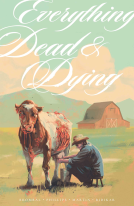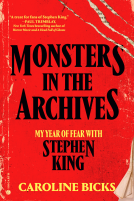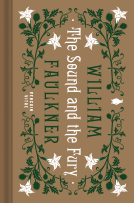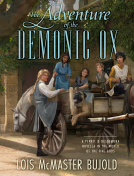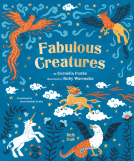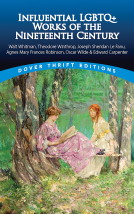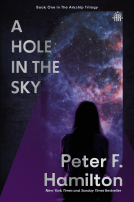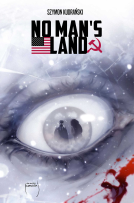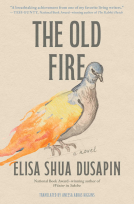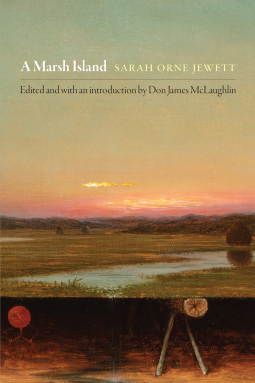
A Marsh Island
by Sarah Orne Jewett
This title was previously available on NetGalley and is now archived.
Send NetGalley books directly to your Kindle or Kindle app
1
To read on a Kindle or Kindle app, please add kindle@netgalley.com as an approved email address to receive files in your Amazon account. Click here for step-by-step instructions.
2
Also find your Kindle email address within your Amazon account, and enter it here.
Pub Date Jun 13 2023 | Archive Date Jun 13 2023
Talking about this book? Use #AMarshIsland #NetGalley. More hashtag tips!
Description
Toward the end of her life, Sarah Orne Jewett (1849–1909) made a surprising disclosure. Instead of the critically lauded The Country of the Pointed Firs, Jewett declared her “best story” to be A Marsh Island (1885), a little-known novel. Why? One reason is that it demonstrates Jewett’s range. Known primarily for her vignettes, Jewett accomplished in these pages a truly great novel. Undoubtedly, another reason lies in the novel’s themes of queer kinship and same-sex domesticity, as enjoyed by the flamboyant protagonist Dick Dale. Written a few years into Jewett’s decades-long companionship with Annie Fields, A Marsh Island echoes Jewett’s determination to split time between her family home in Maine and Fields’s place on Charles Street in Boston. The novel follows the adventures of Dale, a Manhattanite landscape painter in the Great Marsh of northeastern Massachusetts and envisions the latter region’s saltmarsh as a figure for dynamic selfhood: the ever-shifting boundaries between land and sea a model for valuing both individuality and a porous openness to the gifts of others.
Jewett’s works played a major role in popularizing the genre of American regionalism and have garnered praise, both in her time and ours, for her skill in rendering the local landscapes and fishing villages along or near the coasts of New England. Just as Jewett brought attention to the unique beauty and value of the Great marsh region, editor Don James McLaughlin reveals a convergence of regionalism and sexuality in Jewett’s work in his introduction. A Marsh Island reminds us that queer kinship has a long tradition of being extended to incorporate queer ecological belonging, and that the meaning of “companionship” itself is enriched when we acknowledge its indebtedness to environment.
Available Editions
| EDITION | Other Format |
| ISBN | 9781512824261 |
| PRICE | $36.95 (USD) |
| PAGES | 216 |
Available on NetGalley
Average rating from 13 members
Featured Reviews
This book is something that you need to come into with little to no expectations and just be ready for where it takes you. I was completely unfamiliar with Jewett's work prior to picking this up and was absolutely delighted to find it full of lush, gorgeous prose and descriptions of scenery that makes me yearn to be there. This book is something slow and meant to be savored as a kind of poetry in its own right.
 Amanda W, Reviewer
Amanda W, Reviewer
What a pity this book isn't better known because it is a beautifully crafted novel. Jewett describes the landscape so richly I could see it as clear as day, her characters are lovely creations, and she dreamed up the most wonderfully undramatic love triangle ever put to page.
Apparently Jewett considered this her best work and while I don't quite agree with her, I can certainly understand her fondness for it.
Received via NetGalley.
 Grace Q, Reviewer
Grace Q, Reviewer
Jewett's imagery and description of the landscape is so pretty and well done. It is a very slow moving book, however it's done in a way that does not make it feel like a slog, rather a lovely slow stroll.
Dick Dale is a painter from New York City on an excursion to the salt marshes of northern Massachusetts. After an unexpected delay and subsequent injury extends his stay, he finds respite in the home of the Owens family. His immediate kinship with the daughter, Doris, and striking resemblance to son Israel Jr who died in the Civil War brings a connection between this interloper and the family that will reveal itself in striking ways.
Originally published in 1885 to critical, but not commercial, acclaim, Sarah Orne Jewett's A Marsh Island examines regionalism, sexual identity, and national unification in a post-Civil War era through the lens of a pastoral novel. It's akin to a landscape painting come to life, in both descriptions of nature and the tranquility it imposes.
Don James McLaughlin has an excellent essay to start the novel (though it contains spoilers so I'd recommend reading it after you complete the story) that captures the nuances and explains the complexity of what the author does in this text.
I enjoyed reading this story as it sits outside of what I normally read. It has the melodrama of classic literature while bring a nuance and complexity that similar stories of its time wouldn't have. Her characters don't conform to your expected stereotypes—especially regarding gender expression and identity. Men are more emotional and 'feminine,' while women are at times the saviors in perilous situations. These are just two quick examples of the many ways Orne Jewett depicts characters in ways that conflict with the generalizations of her time.
Perhaps if I had read the essay first, despite its spoilers, I would have enjoyed my reading experience a bit more, only in that I would have understood in greater detail and been able to appreciate why this book was important more than I necessarily loved it. It's quite slow; the descriptions, while beautiful, do make the book drag a bit. Each chapter serves as a sort of vignette and it's not until nearly 2/3 of the way into the book that any sort of plot is evident. It's more of a 'fish out of water' story where Dick's experiences and observations are juxtaposed with that of his host family.
All in all, though, I appreciated this book and would be interesting in reading more of her short fiction. She does such a great job at setting a scene and is very witty at times. Her cheekiness reminds me of Jane Austen's observational prowess, and the locales give off a sort of Willa Cather vibe. If either of those comparisons intrigue you, I'd recommend picking this up when it comes out in June 2023.
This is the first Jewett I’ve read, so I can’t speak to how this version stacks up against earlier versions or how it compares to her other works. However, you don’t need to have all of that prior reading done to enjoy this edition of “A Marsh Island,” which follows a queer artist as he ingratiates himself into a Massachusetts marshland farm family. The detailed footnotes demonstrate the care with which this edition is arranged — I especially liked when they would denote where a line deviated from a different edition. The introduction included (which I read after finishing the book) was helpful in explaining how Jewett sought to portray queer companionship in “A Marsh Island” and gave some relevant biographical context explaining Jewett’s assertion that this is her best story. Thank you NetGalley and University of Pennsylvania Press for the review copy.
 Kyle C, Reviewer
Kyle C, Reviewer
Sarah Orne Jewett's novella is a queer love-triangle drama and a lyrical portrait of post-civil war America. A young painter, Dick Dale, visits the rural marshlands of New England to devote himself to his art but, after breaking his leg, seeks the hospitality of a local farming family and is forced to stay indefinitely. The father of the household immediately takes a liking because the artist strikingly resembles his son who died in the war. But he is also a queer outside, a so-called "miss Nancy", who strikes the community as more of a girl than a man. The daughter, Doris, is nonchalant about him but over time she becomes torn with the alluring strangeness of the artist. Her affections shift from her long-time suitor, Dan Lester, and she cannot decide what kind of man and future she would ultimately prefer—the cosmopolitan novelty of the city (which Dick represents) or the familiar routine and security of the marshes (which Dan offers). The farm "fetters" her sense of self but is also provides reliable comfort and stability.
As the introduction by Don James McLaughlin so eloquently lays out, this is a subtle novel about queer identity. Contemporary gay history and identity centers around the city—the bars, the art, the Soho clubs, the Village scene, and the "metronormative" narrative of the young gay man moving to the city to find acceptance— and yet queer literature fetishizes the rural escape. Think Forster's Maurice or Radclyffe Hall's Well of Loneliness, which imagine an idyllic paradise in the agrarian outskirts of the country, queer romantics fashioning alternative lives beyond the judging gaze of heterosexual society. While the novel is never explicit about Dick Dale's sexuality, it repeatedly positions him as the effeminate, artistic and urban interloper, a happy guest but a subject of gossip nonetheless. He comes to love Doris not because of any clear erotic attraction but because her face and her appearance encapsulate some transcendent form of beauty, something he could paint. It is an aesthetic love. To reiterate, it's not a gay novel because it has a gay character. But it is a proto-gay novel in the way it presents a starkly non-conformist idea of love and an eccentric romantic drama, the libertine versus the rustic, in which a woman is in the middle contemplating the opportunities of different kinds of marriage. It is a narrative centered around romantic freedom, possibility and choice.
It's an interesting example of early feminist storytelling, ultimately about a woman's self-determining decision about her own marriage and destiny, without the pressure of her parents. In a reverential way, Jewett celebrates the landscape of Maine and in her dialogue, written in a New England vernacular, she captures the clipped consonants of its rural accents. It is a novel that honors and memorializes a rural and provincial type of literature and life outside bourgeoisie conventions.
 Anne R, Reviewer
Anne R, Reviewer
First of all, don't let the marketing of this book prejudice you one way or another: it may have some queer undertones, but it is by no means a "gay novel."
Jewett is an author best known for her collection "The Country of the Pointed Firs." Having read it and liked it many years ago, I was eager to read this short novel, which Jewett considered her best work. I was not disappointed.
It is about the clash, or at least contrast, of values between life on a farm, with its all-encompassing focus on physical activity, and life in the city, which allows free rein for the mind, especially that which expresses itself creatively. Dick Dale is a wealthy, idle artist who sprains his ankle while sketching in the country and is taken in by a farm family. He becomes enchanted by the simplicity and straightforwardness of rural life and toys with the idea of settling down there, all the while knowing that he does not belong.
He admires the beautiful daughter of the house, but his attraction is esthetic rather than sexual. The editor of this edition assumes that he is gay, which I think is possible but unimportant. He justifies this by pointing out that Jewett was a lesbian and that one of the farming community describes Dale as "nancy," despite the fact that many gay artists create work that has nothing to do with their sexuality and male manual laborers often brand those who work with their wits as effeminate. A critic mentioned in one of the footnotes claims, more persuasively, that this conflict dramatizes Jewett's own dilemma of loving her country home in Maine but needing the intellectual and artistic stimulation of Boston: she had houses in both places.
Ultimately, this lovely book is worth reading for the beauty of Jewett's prose and the subtleties and wit of her mind. It's also a window into rural American life in the late 19th century (it was published in 1885), written with affection but without blinkers. And this edition is heavily footnoted with explanations of words or phrases that are unfamiliar to modern readers.* It's too bad that it's been seized by those hoping to use it to advance their personal agendas. Forget the politics and enjoy the novel.
*I read an early digital copy, courtesy of the Univ. of Pennsylvania Press and NetGalley. I hope this has been corrected in the final version of the ebook, but the many footnote references do not link to the footnotes themselves, making it difficult to consult the footnotes while reading the book.
Pro:
* Smooth, picturesque prose
* Character development
* Idyllic setting
* Local color fiction
* Introduction that contextualizes and gives contemporary insight into the work
Con:
* Perhaps a bit slow of pace
Thank you to the legacy of Sarah Orne Jewett, University of Pennsylvania Press, and NetGalley for an advance reader copy in exchange for an honest review.
 Lesley D, Reviewer
Lesley D, Reviewer
Sarah Orne Jewett has been considered a regionalist and this book, for better or worse, supports that description. She was a true individualist in every way, including living in a "Boston Marriage" with another woman in a committed relationship. She accompanied her physician father on many of his patient visits as she grew up and medical themes can be seen in her books. This book did not excite me but I always enjoy the vivid descriptions of Maine forests and coastal lands.
Readers who liked this book also liked:
Scott Meslow
Arts & Photography, Biographies & Memoirs, Nonfiction (Adult)
Walt Whitman; Theodore Winthrop; J. S. LeFanu; Agnes Mary Frances Robinson; Oscar Wilde; Edward Carpenter
Essays & Collections, LGBTQIAP+, Poetry & Verse
Szymon Kudranski
Comics, Graphic Novels, Manga, General Fiction (Adult), Mystery & Thrillers

